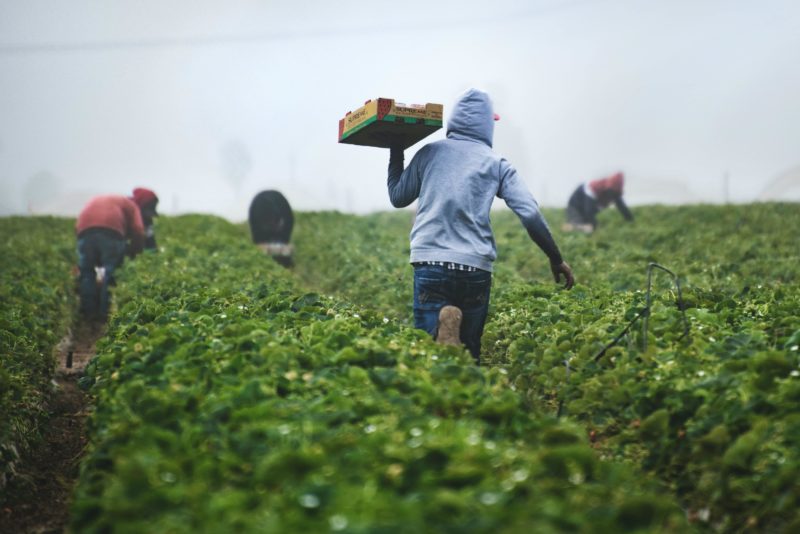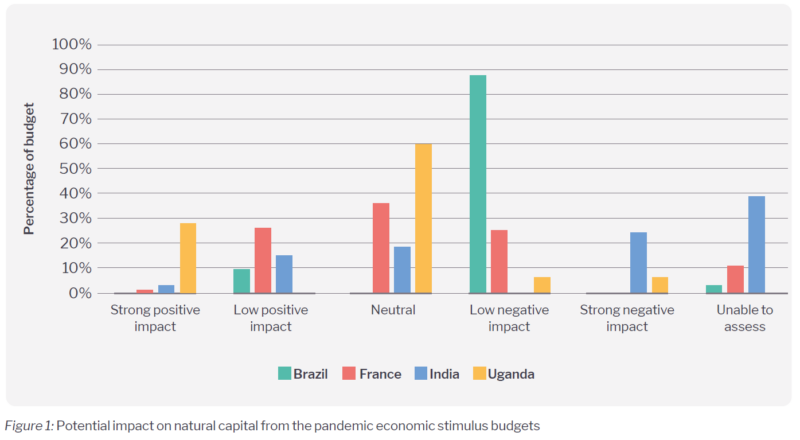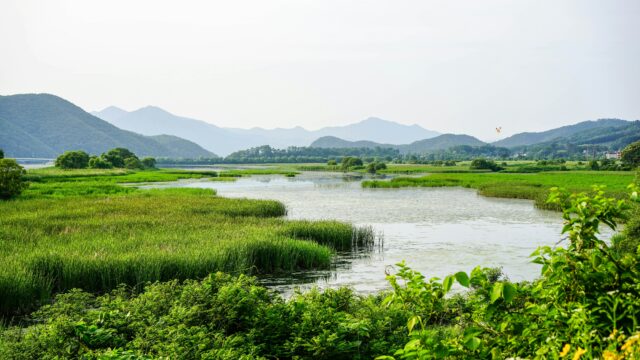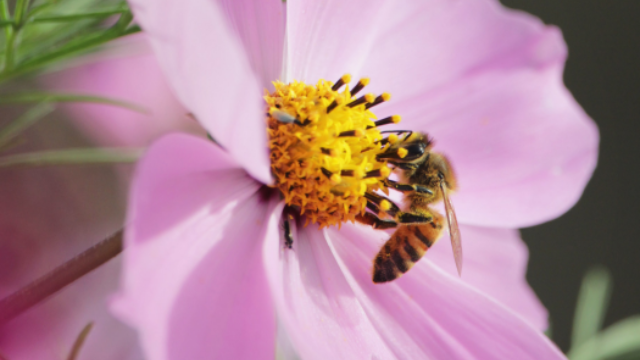Post-COVID Economic Recovery and Natural Capital
Lessons from Brazil, France, India, and Uganda

Our economies are fundamentally reliant upon the stability, health and resilience of nature: without clean water and air, healthy soils, and well-functioning ecosystems, our economies and our societies cannot function. But most economic theory and policymaking fails to account for this, with the result that we are destroying nature at an unprecedented rate.
The most high-profile economic decision-making currently relates to the COVID-19 pandemic. To develop sustainable and resilient economies, it is vital that policies that promote investment in nature are integrated into post- COVID economic recovery.
This analysis of post-COVID recovery measures shows that countries are largely missing the opportunity to invest in nature. A growing body of evidence shows that investments in nature can bring economic and social benefits and drive social inclusion and equity. Decision-making processes for public spending should include a rigorous appraisal of the intervention’s impact on natural capital. Governments should build up a picture of how natural resources contribute to the economy, integrate natural capital into decision-making, and invest in nature-positive actions that benefit people and nature.
- Sejal Patel and Paul Steele

The paper draws on the following country-level research reports, produced by our national partners:


